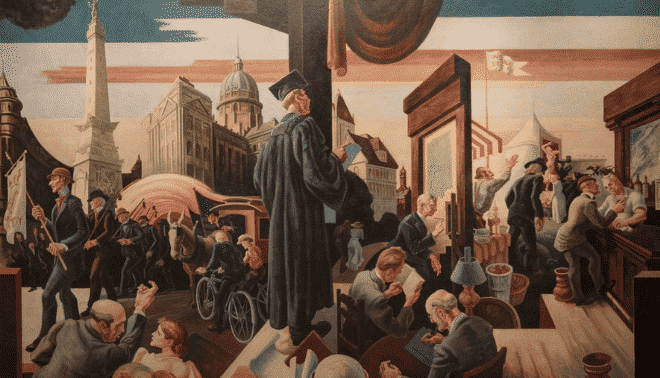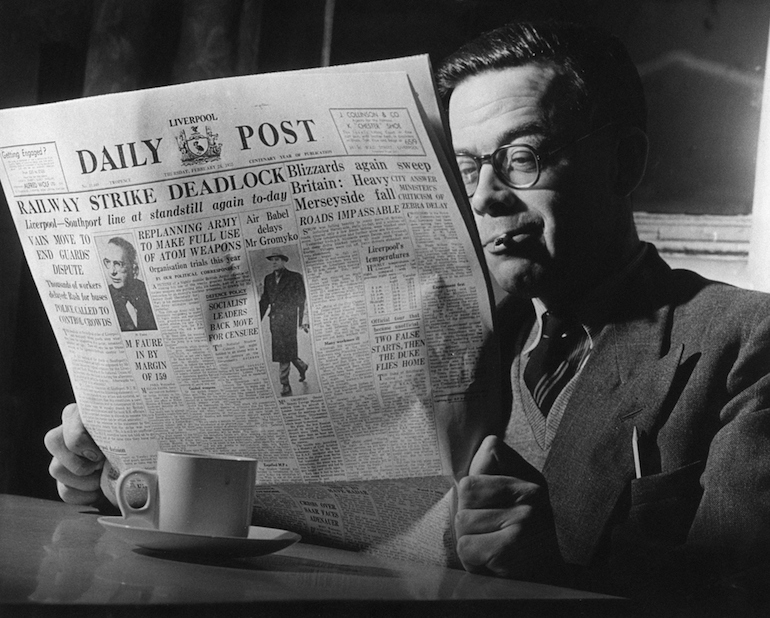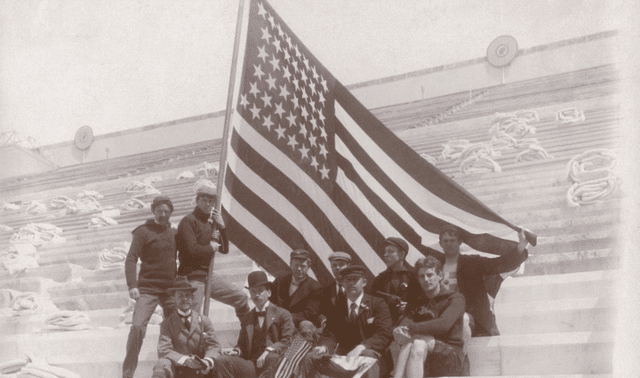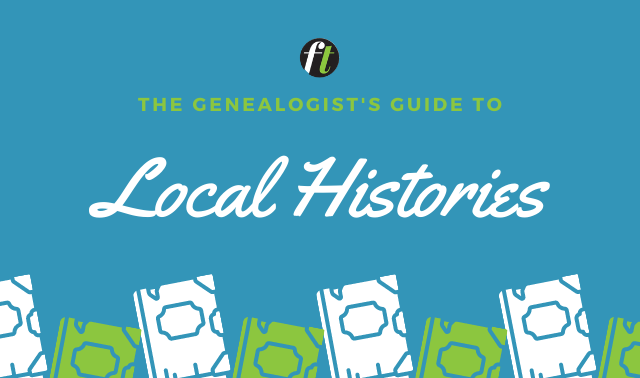Sign up for the Family Tree Newsletter! Plus, you’ll receive our 10 Essential Genealogy Research Forms PDF as a special thank you.
Get Your Free Genealogy Forms
"*" indicates required fields

“Just the facts, ma’am.” That might’ve been enough for Detective Joe Friday in “Dragnet,” but it’s rarely satisfying for today’s family historians. With a world of information at your fingertips, there’s no need to stop with a dry list of names, dates and places.
Many online social history resources can help you discover how your ancestors lived, worked and traveled. Visit these 31 free social history websites to turn dull facts into compelling stories of the challenges your relatives faced and the events and trends that changed their lives. They’re categorized by topic or place to help you find resources that best fit your research needs.
What is Social History?
Social history focuses on “ordinary people’s everyday lives,” says Katherine Scott Sturdevant in her book Bringing Your Family to Life Through Social History (Betterway Books).
While traditional history tends to focus on famous names, key political events and broad trends, social history takes a more down-to-earth approach. It looks at how people made a living, raised children, kept house and moved from place to place. It also sheds light on the impact of storms, war, disease and cultural changes on everyday people.
Think of social history as a bridge between the history of your family (genealogy) and the broader history of a state or nation. It’s history up close and personal.
Say you know your ancestors went from Kentucky to Nebraska between 1870 and 1880, but you lack details. Finding the routes many westward-bound settlers took—and the perils they faced along the way—brings their journey into focus. Once they arrived, how did they make a home? What was life on the frontier like? Did they face a tornado or blizzard?
Studying social history will show you the answers. It can help you:
- understand your ancestor’s work or military experience
- learn about disease outbreaks that impacted your families’ communities
- trace ancestral migration paths
- discover unusual weather conditions where family lived
- identify why people left one place and settled another
- fill gaps in an ancestor’s timeline or between censuses
- shed light on keepsakes, heirlooms and old photographs
- explore your ethnic or cultural heritage
Television shows like TLC’s “Who Do You Think You Are?” expertly weave social history with historical records to create interesting stories. It’s surprisingly easy—and incredibly rewarding—to give your own ancestors the same treatment.
General American History
American Heritage
Explore artifacts, stories and historic sites by time period, or use the Advanced Search box to find topics on this multifaceted collection by the American Heritage Society. Dig into 14,000 stories—many penned by noted historians—and view 100,000 photos of museum pieces, artifacts, landmarks, heritage travel destinations and more.
Digital Public Library of America (DPLA)
With its ambitious goal of making the resources of America’s libraries, archives and museums available for free online, DPLA is a site to bookmark. Dozens of institutions and partner hubs have contributed to DPLA’s hefty bookshelf. Use the general search box, or explore by place or date to find books, photographs and maps of interest to you.
Eyewitness to History
A portal to “history through the eyes of those who lived it,” this site contains firsthand accounts, interviews, photographs, film clips and audio recordings. Browse by category, such as Old West, or century, such as 20th Century (where offerings include Farm Wife, 1900 and Immigrating to America, 1905). The Index makes it easy to find articles and items of interest.
The Library of Congress
This massive effort to chronicle the American experience is made up of several digital collections, each with its own focus. Each collection might feature writings, sound recordings, photos, posters, maps, sheet music and other original materials from the LOC’s holdings. Click on a collection to explore, and use the filters at left to browse by topic or format. Visit this page to access what’s left of the American Memory project, which was focused specifically on social history. (Most of the Memory project’s collections were folded into other parts of the site.)
Making of America
This pair of websites represents a collaborative effort between Cornell University and the University of Michigan to digitize American social history sources. Each site offers a unique collection of books and journal articles on the antebellum period through reconstruction, with its own search and subject browsing features. Bonus: The Cornell collection includes The War of the Rebellion: Official Records of the Union and Confederate Armies.
US History
If putting your ancestor in historical context leaves you needing to brush up on your American history, look no further. Laid out chronologically by topic, the textbook-style entries are enhanced by sidebar links to interactive maps, articles, documents, museum collections, multimedia presentations and related websites.
Migration and Historical Travel
American Notes: Travels in America, 1750 to 1920
This LOC site warrants notice for its original narratives of travel and migration experiences. Enter a state or topic to search by keyword, or click Collection Items to browse by subject. Click on the Related Resources link to find links to “Pioneering the Upper Midwest: Books from Michigan, Minnesota, and Wisconsin, ca. 1820–1910,” among others.
American Rails
Railroads transformed travel in the 19th and early 20th centuries. Get an overview of railroad history at this comprehensive site. You’ll find a general history under the Rail History > Industry History tab, as well as state-by-state listings of rail lines and surviving stations, with a handy glossary, plentiful descriptions, photos, stories and more.
Early American Roads and Trails
Genealogist Beverly Whitaker summarized 19 early migration routes with family history researchers in mind. Scroll down to find a link to the companion site American Rivers and Waterways for resources about travel on rivers, lakes and canals.
The Erie Canal
If your ancestors were among the thousands who traveled the Erie Canal across New York, you’ll appreciate this informative site. Explore historical accounts and images of the canal, packet boats, locks and canal towns, complete with maps and a pictorial tour.
On the Water
This online exhibit by the Smithsonian’s National Museum of American History offers a look at all things nautical. Descriptive summaries and artifacts depict the lives of those who worked and traveled the Atlantic Ocean, Pacific Ocean, Great Lakes, Mississippi River and waterways across the United States from colonial times to the present.
Women and Home Life
Discovering American Women’s History Online
Although your ancestor may not have left letters or a diary, someone might have recorded similar experiences. This site serves as an online finding aid to published collections of women’s personal writings, cataloged on WorldCat by Ken Middleton. Request resources you want through interlibrary loan.
The Food Timeline
What did your ancestors eat? What foods were common in the places they lived? Explore the many articles, recipes and menus in this smorgasbord of links compiled by Lynne Oliver. Click on the Food Timeline Index to see a list of topics, such as State Foods, School Lunches and Old Menus. The latter offers links to dozens of interesting menu collections.
HEARTH
Homemaking tasks were a vital part of our female ancestors’ lives. Cornell University’s Home Economics Archive displays advice our foremothers received on cooking, sewing, childrearing, sick care and more. Search digitized books and journals from the 1820s to the 1990s by subject or keywords, or browse by time period. One highlight: issues of Good Housekeeping magazine from 1885 to 1950.
Old & Interesting
How’d they do it? What things did they use? Discover domestic life of the past in fascinating detail through photos, illustrations and histories of everyday objects. If you’re curious about antique washers, cookware, furniture or gadgets, you’ll find enough to keep you occupied for hours. Follow the link to sister site Home Things Past for even more vintage household goods.
Women’s History Month
Created as a resource for women’s history studies by several government agencies, this site ranges far beyond a single month (March). Click on Exhibits and Collections and scroll to various topics, or view audio/video webcasts. The resources for teachers are helpful for genealogists, too.
Women Working, 1800–1930
Explore the many contributions of women in the American workplace and on the social front with this Harvard University collection. Search the full text of more than 3,100 books, diaries, magazines and trade catalogs, and learn about key women’s organizations. Browse 1,400 photographs from settlement houses, businesses and charitable organizations.
Weather and Disasters
GenDisasters
Floods, fires, tornadoes, hurricanes, blizzards, train wrecks, earthquakes, mine explosions, even horse and buggy accidents—if it made the headlines, look for it here. Browse by type of disaster, state or year on this site created with genealogists in mind. Newspaper transcriptions provide breaking news accounts of events that touched our ancestors’ lives.
NOTE: This site is down. However, it is still accessible through the WaybackMachine on Archive.org.
Influenza 1918
The so-called Spanish Flu killed more than 600,000 Americans, more than any other epidemic. PBS has documented the outbreak with articles, a timeline, interviews and video clips from its American Experience series.
National Climatic Data Center
Weather—severe or not—adds interest to historic events. Find local weather summaries, local storm data, and more climate reports on this site from the National Oceanic and Atmospheric Administration.
Special Interest
African-American Odyssey
This American Memory site offers digital access to the LOC exhibition “A Quest for Full Citizenship,” as well as other related collections. Resources here span 200 years of African-American history, dating back to the 1700s.
The Civil War
This site’s year-by-year overviews, battle summaries, biographies, discussion of medical practices and more provide plenty of fodder for putting your Civil War-era ancestors in historical context. Photographs, drawings and maps convey more than words alone. Digitized issues of Harper’s Weekly magazines published from 1861 to 1865 provide a unique view into this tumultuous time.
Immigration to the United States, 1789–1930
Harvard University Library’s digital collection covers a wide range of immigrant experiences, neatly organized by topic. You’ll find information and resources to help you understand Scandinavian immigration, the California Gold Rush, the Settlement House Movement, the Chinese Exclusion Act and many other issues.
State and Regional Memory Projects
American Life Histories: Manuscripts from the Federal Writers Project, 1936 to 1940
Writers employed under the Work Projects Administration interviewed thousands of ordinary men and women from 1936 to 1940 to collect their life stories for an American Folklore Project. The resulting narratives offer firsthand accounts of rural and urban life in the late 1800s and early 1900s.
Canadiana
Dedicated to the digitization and access to Canadian archival collections, this site offers historical background for your Canadian ancestors. Click one of the online exhibits, such as Monographs, for helpful summaries and links to original documents. Search the Héritage Project by place or subject keywords. The search bar takes you to digitized resources contributed by numerous libraries, museums and archives.
Digital Library of Appalachia
This site explores the culture, music, occupations, environment and customs of the southern Appalachian region. Materials contributed by college libraries in Kentucky, Tennessee, North Carolina and Virginia preserve the area’s heritage. Don’t miss Berea College’s audio recordings of traditional Appalachian music.
Tip: To find a digital memory project for your state, county or city, google the name of the state or municipality with the words memory or digital library.
Documenting the American South
The University of North Carolina has compiled more than a dozen themed collections of southern history, literature and culture covering an array of subjects. Documents, diaries, personal narratives, letters, reports, photographs, maps and more bring the southern experience to life.
Maine Memory Network
The Maine Historical Society has assembled a compelling state memory website featuring dozens of online exhibitions, including “This Rebellion: Maine and the Civil War” and “Away at School: Letters Home.” The Maine Memory Network also offers a detailed survey of state history organized by themes and time periods.
Mountain West Digital Library
With over 900,000 resources, this well-organized site offers access to a broad range of historical materials from Arizona, Idaho, Montana, Nevada and Utah. It’s easy to find subjects of interest in the alphabetical digital collections menu (under the Collections tab). Also browse offerings from contributing institutions or use online portals to maps and finding aids.
Ohio Memory
More than 360 cultural organizations have contributed photographs, manuscripts, postcards, maps, newspapers and historical memorabilia to the Ohio Memory project since 2000. Browse materials by place or subject, or enter a search term to find treasures like high school commencement programs and yearbooks.
Virginia Memory
Virginia history, culture and records are featured in dozens of attractively organized digital collections offered by the Library of Virginia. Click on Digital Collections to begin browsing by topic or alphabetically. Peruse thousands of photographs, newspapers, maps, rare books, military records, commemorations, life histories, broadsides and much more.
Don’t be surprised if your ancestors seem to come alive as you explore some of the incredible social history resources on these websites. Going beyond your ancestors’ names and important dates to discover the places they lived and the ways they fit into history is what makes genealogy so enjoyable. By fleshing out the stories of your relatives’ lives, you’ll gain a deeper sense of connection to them and to your own cultural heritage.
More Resources
County and town histories
County and town histories provide rich local detail, and newspapers impart the flavor of a time and place. Use them to explore the events and happenings during your ancestors’ times with these online sources.
- Ancestry.com: Search the Card Catalog. $
- FamilySearch Books
- Google Books
- HathiTrust
- HeritageQuest Online (available at subscribing libraries)
- Internet Archive
- My Genealogy Hound
Newspapers
- Chronicling America
- Elephind
- Fold3 $
- Free Newspaper Archives
- GenealogyBank $
- Google Newspapers Archive
- Online Historical Newspapers Website
- NewspaperARCHIVE $
- Newspapers.com $
How to Find More Social History Resources
Begin with a general search on Google or your favorite search engine for a topic along with a location, such as canal routes Pennsylvania. Or use the word history in conjunction with your place search, such as Cades Cove history. Wikipedia has entries for countless historical and cultural topics, with contributions from people around the world. Check the References section at the end of the Wikipedia listing for additional links, and remember to cross-check information you find with other sources.
Also check Cyndi’s List for links to social histories by clicking on the location name for the place where your ancestors lived. Your searches may turn up information in old newspapers, local histories, digital memory projects and other sources.
Memory projects, usually initiated by a library or archive with contributions from similar organizations, feature digitized books, documents and memorabilia from contributors’ physical collections. In addition to books, you might find photographs, postcards, letters, diaries, manuscripts, maps, drawings, heirlooms, business and school souvenirs, original records and newspapers. Many sites organize these into themed collections, creating a rich online scrapbook of cultural history.
The Digital Library of Georgia, for example, has posted over a million objects online. More than 180 Massachusetts repositories have collaborated to create Digital Commonwealth. For a list of state projects, see the Library of Congress’ guide State Digital Resources: Memory Projects, Online Encyclopedia, Historical & Cultural Materials Collections. The Digital Library Directory lists 750 projects worldwide.
Related Reads
A version of this article appeared in the March/April 2015 Family Tree Magazine. Last updated: May 2025









